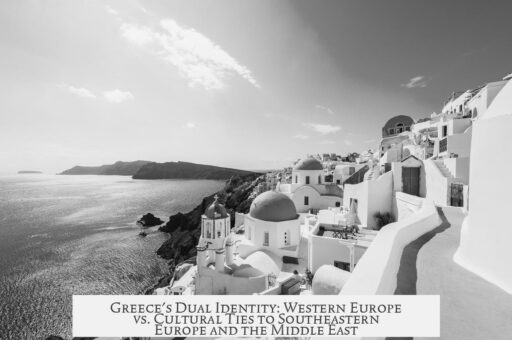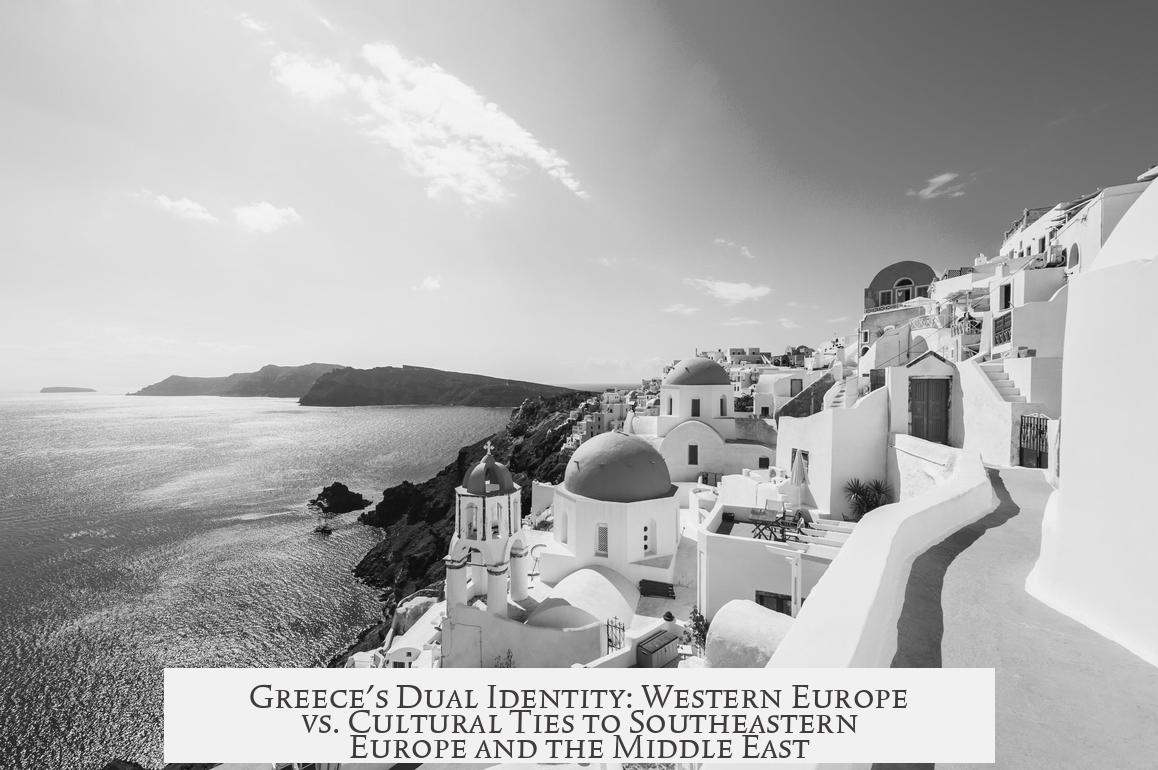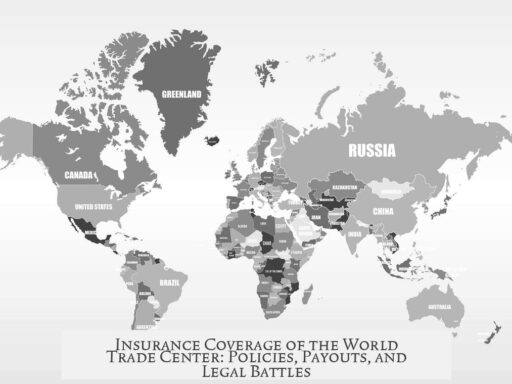Greece is seen as part of Western Europe mainly because of its political alignment during and after World War II, rather than purely cultural, historical, or genetic reasons. The prominent factor shaping modern perceptions of Eastern vs. Western Europe stems from the Cold War division, which placed Greece firmly outside the Soviet sphere of influence.
The division between Eastern and Western Europe is not fixed and varies depending on historical periods and perspectives. Historically, one of the earliest and most influential divides emerged from the Roman Empire’s split into East and West. This division created distinct religious traditions. Western Europe became predominantly Latin rite and Roman Catholic, while Eastern Europe was mostly Orthodox Christian, sharing religious heritage with Greece.
Despite Greece’s Orthodox Christianity linking it culturally to Eastern Europe and the Middle East, the modern concept of Europe’s division relies heavily on more recent political events. Greece’s geographical position in southeastern Europe and its historical and genetic ties to the Balkans and the eastern Mediterranean complicate simple geographical or cultural classification.
More concrete differences exist within Eastern Europe itself. Many Eastern European countries have Slavic languages and varying religious backgrounds, such as Catholicism in Poland and Orthodoxy in Romania. Other nations like Estonia, Albania, and Hungary have unique linguistic and religious identities, illustrating the complexity of defining Eastern Europe purely by culture or ethnicity.
During the Cold War, countries under communist control were broadly labeled Eastern Europe, while those aligned with NATO and Western political systems were considered Western Europe. Greece resisted communism during the post-World War II Greek Civil War, with the government receiving support from Britain and the United States. This resistance ensured Greece remained politically aligned with the West and outside the Soviet bloc.
This political reality trumped cultural or historical affiliations. Despite Greece’s Orthodox religion and southeastern location, it was part of the Western European political and economic sphere after World War II. This remains the primary reason why anglophone sources and many Western frameworks categorize Greece within Western Europe today.
The legacy of Cold War politics has left economic, cultural, and infrastructural influences that persist. These factors combined cement Greece’s status as Western European in the eyes of many, especially in English-speaking countries.
The divisions between East and West Europe are further complicated by terms like “Central Europe,” which emerged to bridge the conceptual gap. Still, this new category has not significantly changed the broad Cold War-based understanding.
| Aspect | Eastern Europe | Western Europe | Greece |
|---|---|---|---|
| Religion | Predominantly Orthodox and some Catholic | Mostly Roman Catholic and Protestant | Orthodox |
| Language Family | Slavic, Baltic, Uralic, Romance | Primarily Romance and Germanic | Hellenic (Greek) |
| Cold War Alignment | Communist or Soviet-aligned | NATO/Western-aligned | Western-aligned |
For example, Finland is seen as Western Europe due to its post-war political neutrality and alignment, while Estonia is classified as Eastern Europe due to Soviet domination. Greece aligns more with Western Europe given its Western-backed government and NATO membership.
The differences between East and West Europe remain fluid and based on multidimensional factors including history, faith, language, politics, and ideology. Yet, the Cold War context remains the most influential factor in Greece’s current classification within Western Europe.
- The East-West European divide lacks a single clear definition, fluctuating by historical context and viewpoint.
- Religious history ties Greece to the Orthodox East, but Cold War politics anchor it in the West.
- Greece’s post-WWII alignment with Western Allies excludes it from Soviet Eastern Europe.
- Modern perceptions owe much to 20th-century political realities rather than cultural or genetic heritage.
- This explains the apparent contradiction between Greece’s cultural ties and its Western Europe classification.
Why is Greece Seen as Part of Western Europe Despite Cultural, Historical, and Genetic Ties to Southeastern Europe and the Middle East?
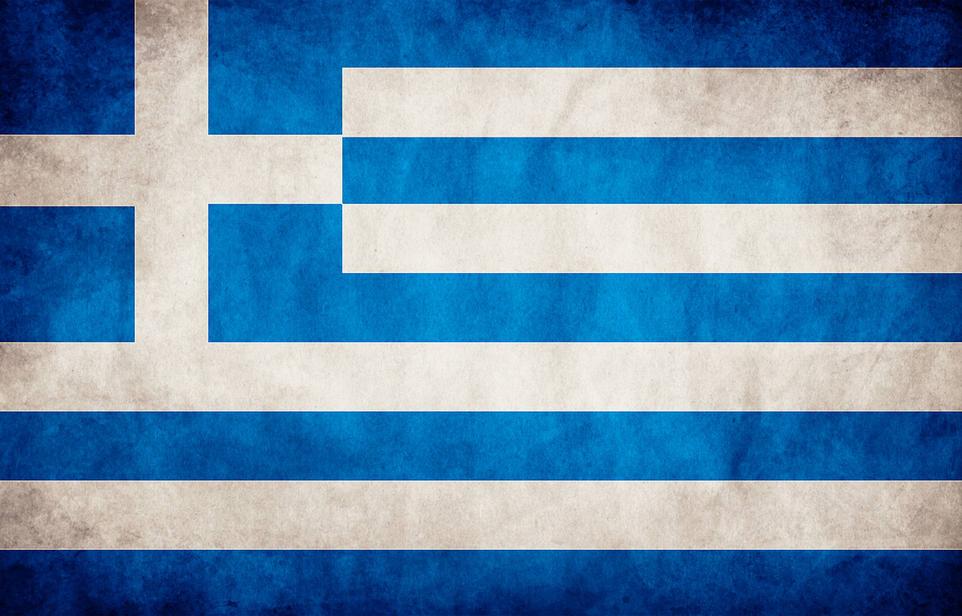
At first glance, Greece gets wrapped up in Western Europe mainly for political reasons, *not* because it shares all the cultural or historical DNA of typical Western countries. This is fascinating because, when you peel back the layers, Greece shows much closer ties to Southeastern Europe and even the Middle East. Why does this happen? Let’s take a scenic dive through history, culture, and politics to unpack this European identity puzzle.
First off, the idea of “Eastern” vs. “Western” Europe isn’t a fixed rule written in stone. It’s more like trying to draw lines on an ever-shifting jigsaw puzzle. What counts as Eastern Europe depends on the year, the country drawing the map, and who’s talking. Some might argue Greece is Southeastern Europe, others might lump it into the West. This fuzziness means geography alone can’t settle the debate.
For example, the historical split of the Roman Empire into East and West left a lasting mark. The Western half spoke Latin and later birthed Roman Catholicism, while the Eastern half spoke Greek and nurtured the Byzantine tradition and Orthodox Christianity. Greece, deeply tied to Orthodox Christianity, naturally fits into this Eastern part—culturally and religiously a part of the East.
But here’s the kicker: during the Cold War, a time that shaped much of today’s Europe, the world scrunched these distinctions into a binary choice—communist East versus capitalist West. Greece was firmly in the Western camp. Why? In 1945, Britain stepped in to keep Greece away from Soviet influence. This included a brutal civil war where Western powers backed the Greek government against communist forces.
This political alignment stuck in the Anglophone world’s mind. Greece was no Iron Curtain neighbor. It had Western-backed governments, economies, and alliances. Modern maps and narratives reflect that Cold War legacy rather than the complex cultural reality on the ground.
Culture and Religion: A Mosaic, Not a Map
Trying to lump all of Eastern Europe into one cultural group misses the rich diversity there. Think of the Baltic states—they mix Catholic, Orthodox, and Protestant influences from various neighbors. Poland, Czechia, Slovakia, Slovenia, and Croatia are mostly Catholic, whereas Bosnia, Albania, and Kosovo showcase Islamic influences from Ottoman history.
Language adds another twist. Many Eastern European languages are Slavic, but not all. Albania speaks a unique Indo-European tongue. Hungary speaks a Ugric language from deep in the east, and Romania, while Orthodox, speaks Latin-based Romanian. Greece’s language and ethnicity differ sharply from typical Eastern European Slavic profiles, pulling it in another direction *entirely*.
Genetics and Geography: More Than Meets the Eye
Greece’s genetic profile highlights connections with the Middle East and Southeastern Europe. This is no surprise when you look at its history—a crossroads of empires, trade routes, and migrations bridging continents. From Phoenicians to Ottomans, history stitched a complex genetic tapestry.
Despite genetic affinities with its eastern and southeastern neighbors, political and social choices in the 20th century created a wedge. So, while Greeks might share ancestry closer to Middle Eastern groups, they stand with Western Europe in many international frameworks.
So, What’s the Takeaway?
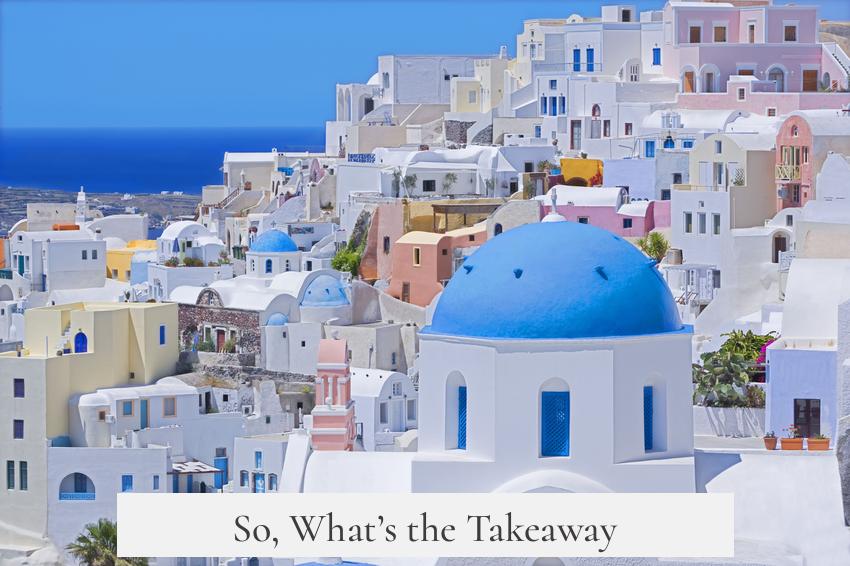
Greece’s Western Europe label is more a product of politics than pure ethnography or cultural kinship. The Cold War’s shadow looms large. It simplified and politicized Europe for practical purposes—eastern Europe meant communist states; western Europe meant free-market democracies supported by NATO and the US.
Meanwhile, the Orthodox culture and Greek language place Greece more naturally in the East or Southeast culturally. Its diverse religious, linguistic, and genetic ties show Europe is not a simple East-West sandwich but a rich layered cake—sometimes sweet, sometimes savory, and hard to slice neatly.
Still wondering?
- Why does Greece join the EU’s Western bloc despite those ties? Because political alliances and economic policies ride the current Western rails.
- Does Greece feel more Eastern or Western to locals? Opinions vary. Many Greeks feel a bridge between worlds—pride in their Orthodox heritage and Mediterranean culture, balanced with engagement in Western economic and political systems.
- Is it possible Europe will see a reclassification? With globalization and shifting alliances, definitions may evolve. Terms like “Central Europe” occasionally slip in to reflect complexity, but legacy perceptions hold strong.
Final Words: Greece as Europe’s Cultural Bridge
Greece sits at a fascinating crossroads. It embodies layers of history stretching from classical Greece to Byzantine, Ottoman, and modern Western frameworks. Its categorization in Western Europe is a political artifact, a legacy of the Cold War’s simplistic divisions. However, its cultural heartbeat connects deeply to Southeastern Europe and even the Middle East. This dual identity is what makes Greece truly unique.
So, next time you think about Europe’s neat little boxes—remember Greece. It defies easy classification and challenges us to appreciate history, politics, language, culture, and genetics tossed together in the complex stew that is European identity. Makes you wonder—maybe the real Europe is a blend, not a border.
“Europe’s borders are lines drawn in sand. Greece is the wave that laps them constantly.”
Feel free to dive deeper into this topic on forums like AskHistorians. Scholars and enthusiasts continue to untangle these rich threads daily.
